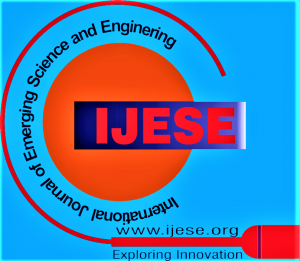![]()
Eduvision AR: An Offline Multilingual Augmented Reality Learning Application
Dhanya G S1, Hepziba Gnanamalar R2
1Dhanya G S, Student, Department of BCA, PSGR Krishnammal College For Women, Coimbatore, (Tamil Nadu), India.
2Dr. Hepziba Gnanamalar R, Assistant Professor, Department of Computer Science, PSGR Krishnammal College for Women, Coimbatore, (Tamil Nadu), India.
Manuscript received on 27 October 2025 | First Revised Manuscript received on 31 October 2025 | Second Revised Manuscript received on 06 November 2025 | Manuscript Accepted on 15 November 2025 | Manuscript published on 30 November 2025 | PP: 12-17 | Volume-13 Issue-12, November 2025 | Retrieval Number: 100.1/ijese.L262913121125 | DOI: 10.35940/ijese.L2629.13121125
Open Access | Editorial and Publishing Policies | Cite | Zenodo | OJS | Indexing and Abstracting
© The Authors. Blue Eyes Intelligence Engineering and Sciences Publication (BEIESP). This is an open access article under the CC-BY-NC-ND license (http://creativecommons.org/licenses/by-nc-nd/4.0/)
Abstract: Augmented Reality (AR) is changing modern education by connecting physical learning spaces with digital experiences. This study introduces Edu Vision AR; a unique educational app developed with Unity 3D and Vuforia SDK to improve interactive learning. The main goal of this research is to create an AR learning tool that works offline, supports multiple languages for audio narration, and includes interactive quizzes to boost student engagement and understanding. The application has eight main parts: AR Visualization, Audio Narration, Interactive Quiz, Offline Functionality, Language Support, User Interface, Data Storage, and System Integration. Each part aims to provide a smooth learning experience that encourages students to engage actively through visual and sound interactions. The system uses marker-based AR tracking to display 3D models, developed in C# for functionality and interactivity. This research follows a design and implementation process that starts with analyzing user needs. This is followed by developing models and testing them in a classroom-like setting. The evaluation looked at usability, performance, and educational impact. The findings show that students had a better understanding of the concepts and felt more motivated when using AR-based content than when using traditional 2D learning methods. The results indicate that EduVision AR’s offline capability and support for multiple languages make it especially useful for rural or low-connectivity areas. This ensures that all students have equal access to quality education. By combining interactive visuals, localized audio, and offline features, this study concludes that AR-based learning can be a powerful tool for personalized and culturally relevant education.
Keywords: AR, Edtech, Learning in Multiple Languages, Offline Study, Unity 3D, And Vuforia SDK.
Scope of the Article: Computer Vision
